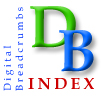
| Search |
 |
||||||||
| Words | Images | Audio | Scholar | ||||||||
|
||||||||
|
Although research in online search and citation practices is much more common in fields such as management of information systems and library and information science, Celia Rabinowitz's 2001 article, "Working in a Vacuum," points out that there has not been a great deal of overlap between composition teacher-scholars and the specialists who design and control academic online information systems. We are seeking, through this research, to bring a writing studies perspective to bear on the literate practices of researchers as they search for and locate source material online in academic settings. Scholars in library and information science, information management, computer science, and related fields have long studied search practices and search technologies and have provided important insights into the ways people search for information and the ways search technologies enable or constrain these processes. Some scholars have approached these issues from a cognitive perspective (e.g., Belew, 2000), some from an information processing perspective (e.g., Huang, 2000), and others from a sociotechnical perspective (e.g., Bishop, Van House, & Buttenfield, 2003) . Regardless of the theoretical lens in use, most of this research seeks to generalize conclusions about users' search practices, rather than focusing on local cases. For example, scholars such as Leah Graham and Panagiotis Takis Metaxas (2003), and Raya Fidel (1991) are, like us, interested in how students in academic settings search for information online, but their projects differ from ours in several important ways. The Graham and Metaxas study, published in 2003, uses as its method a survey administered to students as part of a class called "Computers and the Internet." The survey was designed to test whether students could find the correct answers to research questions and whether they would seek to verify their findings. Ultimately, they argue that while students are eager to use the Internet, they lack the skills to critically evaluate the sources they locate. The Fidel (1991) study uses a slightly more complex series of methods (observation of search activities and analysis of verbal and search protocols) in an attempt to identify the impact of different actions on the part of researchers. One conclusion of this study is that while certain searchers are more "interactive" than others--conducting additional searches, altering terms, and using different strategies--this interactivity does not necessarily translate into a successful search experience. In their studies of what they call "information encountering," Sandra Erdelez (1999) and Catherine Sheldrick Ross (1999) do emphasize the possibility of discovering useful information in less structured searches and so allow for a research model based less on efficiency. Ross, however, limits her discussion to the context of pleasure reading print books, and Erdelez, although she suggests the Internet offers productive possibilities for information encountering, does not identify or study particular practices that might lead to or that characterize such productive encounters. From a writing studies perspective, while much of this research is certainly valuable, its methodological perspective often seeks to limit and control the variables that impact the search processes of participants in order to examine one type of practice in detail. While some research in these disciplines includes in-depth focus on local, specific cases, the results of such research is often primarily quantitative (e.g., Craswell et al., 2004; Vakkari, Pennanen, & Serola, 2003). And in spite of calls, beginning as early as 1990 (e.g., Crabtree et al., 2000; Mellon, 1990), for a more ethnographically informed research process into search and retrieval behaviors, such research is not currently common in any of the disciplines mentioned above. Even when ethnographically informed scholarship is presented, as in the study of technical support workers presented by Sally Jo Cunningham, Chris Knowles, and Nina Reeves at an academic computing conference in 2001, such scholarship continues to situate participants as the subjects of observation and manipulation on the part of the researcher. This scholarship rarely, if ever, seeks to help participants reflect on, understand, and improve their own search strategies. Rather, it tends to regard participants as subjects who illustrate larger trends about searching and search technology. |